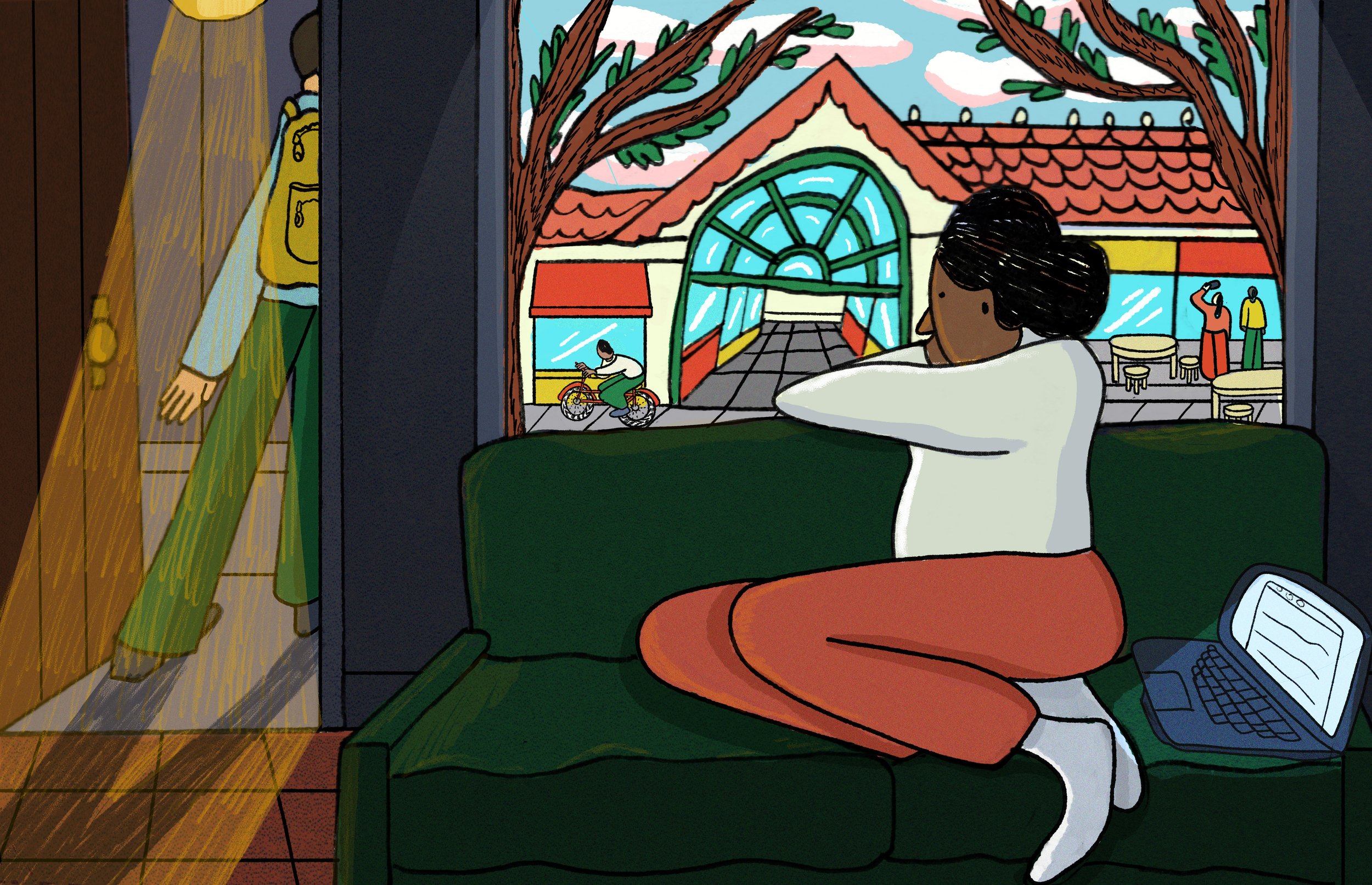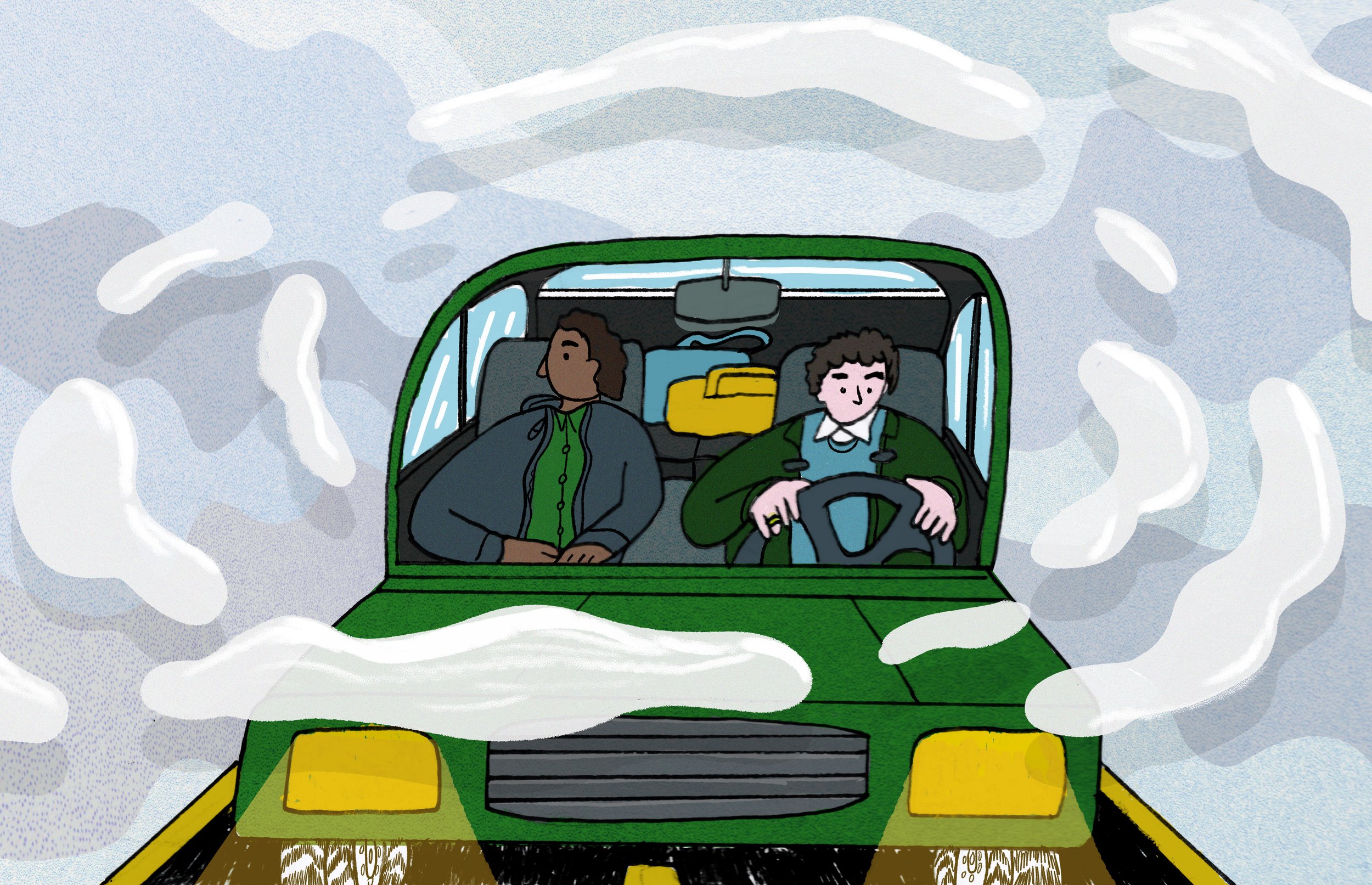6:30 p.m. in Ngogo

6:30 p.m. in Ngogo is heat rolling off the mountains, down through the valley with the sun, and away.
Smoke creeps from the cookhouse and out through the rain into the clearing. I write from the rickety table next to my tent, under the tin shelter, tea mug steaming. Twelve crates of empty Coke bottles stand in the center of camp, nobody willing to endure their grating clatter for a 90-minute ride down the rutted Jeep track to town. Spiders have colonized their rims, geckos their dusty bases. In this dusky hour before dinner, a troop of L’Hoeste monkeys passes through camp, pausing for the delicate vine that reaches for the open sun at the forest edge. They are a beautiful black and rich copper, with bright white whiskery cheeks. The females with their fuzzed infants sit alert, stuffing their mouths with both hands and keeping their eyes trained on me as I rest my elbows on the cabin railing. Their big males eat less and watch me hard, mouths half-open and ready to warn, Tiffany-blue testicles surprising and absurd.
But it’s the Ngogo chimpanzees that are at the center of our intrigue, our practical work as researchers. Sills gave birth to a son at age 50. Carter doted on Juliane—and only Juliane—who paid him no mind at all. Kidman was lost to poachers’ dogs as she crouched protectively over her baby, who also died later, too young to be without her. Lita lost her entire foot to a poacher’s snare, but still tolerates us following her slow progress along the forest floor. They are individuals, yes, and they are more than that—they can’t live without each other, they delight in reunion, they retaliate, they share their sixty rich years of life. Like most of us, they are not lovely, but fascinating, their histories written on their skin. To lose these histories early—to sickness, to violence—is a great sadness. To witness their delighted fig-eating, their naughty children, their graceful aging, is a wild gift.
We sit every day with our little notebooks, among the tusks and canines and thorns of the forest. We strain over the booming of monkeys and the thrash of hornbills taking flight to catch the sound of chimpanzees picking tiny flowers a hundred feet off the ground. We track their use of gesture, their use of tools. We track the role of hormones. But what gathers our heads together at the dinner table is a moment captured on video of a youngster balancing a stick carefully on her back instead—her mother won't let her carry the baby. Our shared laughter because we know this little one and her mother made the right choice, but still we wish we could see it play out. They are most definitely not us, and this too makes them beautiful.
We ask each other, is Gus still favoring that left hand? (No.) Does Hester’s new baby still have that cough? (Yes.) Are there enough figs in that tree down on Q trail for breakfast tomorrow? (Unless the parrots get them all.) And then we gossip. Seems like Wes is warming to Nyumbani after all — they touched hands today. Does Zawinul seem too old to be spending all day with his mom? We laugh, we weigh in, and we wonder aloud what tomorrow brings. At dinner’s end, we wear headlamps through the grass to find our tents, our thoughts full of these lives that feel almost our own, one half degree from the equator, in the fragrant dark.
About the Author
Sarah Dunphy-Lelii comes from a family of teachers and has herself been teaching at Bard College for 16 years, working with undergraduates (in upstate New York), preschool-aged children (in her research), and wild chimpanzees (in Kibale, Uganda).
She has her B.A. from Penn State and her Ph.D. in developmental psychology from the University of Michigan. Her academic writing has appeared in journals including the Journal of Cognition and Development, Folia Primatologica, and Scientific American; her creative nonfiction writing appears in venues including Plume, The Common, Dogwood, CutBank, Unbroken, and Passages North.
Illustration by Amélie Rey Lescure.
Edited by Tusshara Nalakumar Srilatha.











